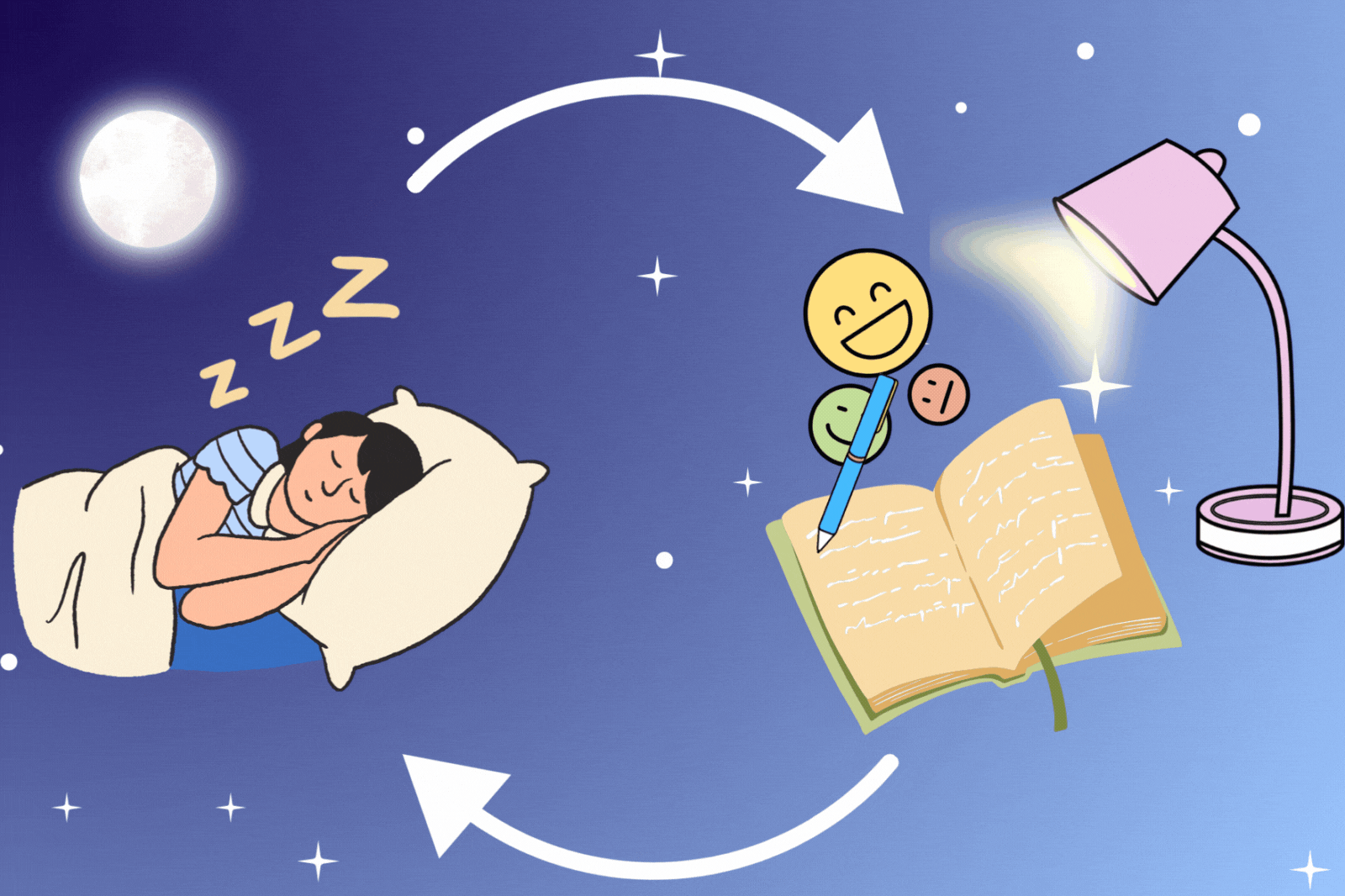Journaling for Sleep: How Journaling Helps You Catch More Zzzs

In the pursuit of a good night’s rest, people often explore various techniques to help them unwind and prepare for sleep. One surprisingly effective method is journaling before bed. While it might seem like a simple activity, putting pen to paper can have a profound impact on your sleep quality. Here’s how journaling before bed can help you sleep better and practical tips on how to integrate this habit into your nightly routine.
The Science Behind Journaling and Sleep
Journaling before bed is more than just a relaxing activity; it taps into several psychological and physiological processes that contribute to improved sleep. Here’s how:
- Reduces Stress and Anxiety: Research shows that expressive writing can reduce anxiety and stress. Writing about your thoughts and feelings can act as a mental release valve. By externalizing your worries and concerns, you can alleviate stress and anxiety that might otherwise keep you awake.
- Clears the Mind: Journaling helps clear your mind of racing thoughts that can prevent you from falling asleep. By jotting down what’s on your mind, you create a mental “to-do” list for tomorrow. This can prevent intrusive thoughts from circling in your head as you try to drift off.
- Promotes Reflection: Reflective journaling can help you process and make sense of your day. This form of journaling often involves reviewing positive experiences and challenges.
- Establishes a Routine: Creating a bedtime journaling routine signals to your body that it’s time to wind down. Routine activities that you perform consistently before bed can help establish a sleep-friendly environment and signal to your brain that it’s time for bed.
How to Start a Bedtime Journaling Practice
Incorporating journaling into your bedtime routine doesn’t have to be complicated. Here are some practical tips to help you get started:
- Choose the Right Journal: Select a journal that’s enjoyable to write in. It could be a simple notebook or a beautifully designed journal that inspires you. The key is to choose something that makes you look forward to the journaling process. It can also be wise to get a guided notebook with helpful prompts to get you writing.
- Set Aside Time: Dedicate a specific time each night for journaling, ideally about 20-30 minutes before you plan to go to sleep. Consistency is crucial for building a habit and signaling to your brain that it’s time to wind down.
- Create a Comfortable Environment: Find a quiet, comfortable space where you can write without distractions. Consider incorporating soft lighting or soothing music to enhance the relaxation effect of your journaling session.
- Use Prompts: If you’re unsure what to write about, consider using prompts to guide your journaling. Examples include:
- What are three things I’m grateful for today?
- What are some worries I can write down?
- What was the highlight of my day?
- What challenges did I face today, and how did I handle them?
- What am I looking forward to tomorrow?
- Focus on Positivity: While it’s important to process negative emotions, try to balance your journaling by focusing on positive aspects of your day. Gratitude journaling, where you list things you’re thankful for, can be particularly effective in promoting relaxation and a positive mindset before bed.
- Avoid Screens: To enhance the effectiveness of your journaling, avoid using electronic devices. Writing by hand is more effective in winding down and helps you disconnect from the stimulation of screens.
- Reflect and Release: Use your journaling time to reflect on your day and release any lingering stress or worries. This process can help you gain clarity and perspective.
Benefits Beyond Sleep
The benefits of bedtime journaling extend beyond just improving sleep. Regular journaling can:
- Enhance Self-Awareness: Journaling helps you become more in tune with your thoughts and emotions. This self-awareness can lead to better emotional regulation and a deeper understanding of your experiences in life.
- Improve Problem-Solving: By reflecting on daily challenges and solutions, you can enhance your problem-solving skills.
- Boost Creativity: Regular writing can stimulate creativity and help you tap into new ideas and perspectives. This mental engagement can lead to personal growth and a more fulfilling life.
Conclusion
Journaling before bed offers a simple yet powerful tool for enhancing sleep quality. By reducing stress, clearing your mind, and promoting reflection during a bedtime routine, journaling can help you wind down. As with any new habit, consistency is key. By integrating journaling into your nightly routine, you not only set the stage for a more restful night but also enjoy a range of additional benefits that contribute to overall mental and emotional well-being.
Why Trust Us?
At The Sleeping Institute, we're dedicated to transparency, impartiality, and accuracy in every article we publish. Our reviews are based on comprehensive analysis and firsthand experience. Staying current with the latest advancements in sleep technology, we offer up-to-date, reliable, and unbiased information to help you make informed decisions for a better night's rest. Let us be your trusted guide in the ever-evolving world of sleep technology!